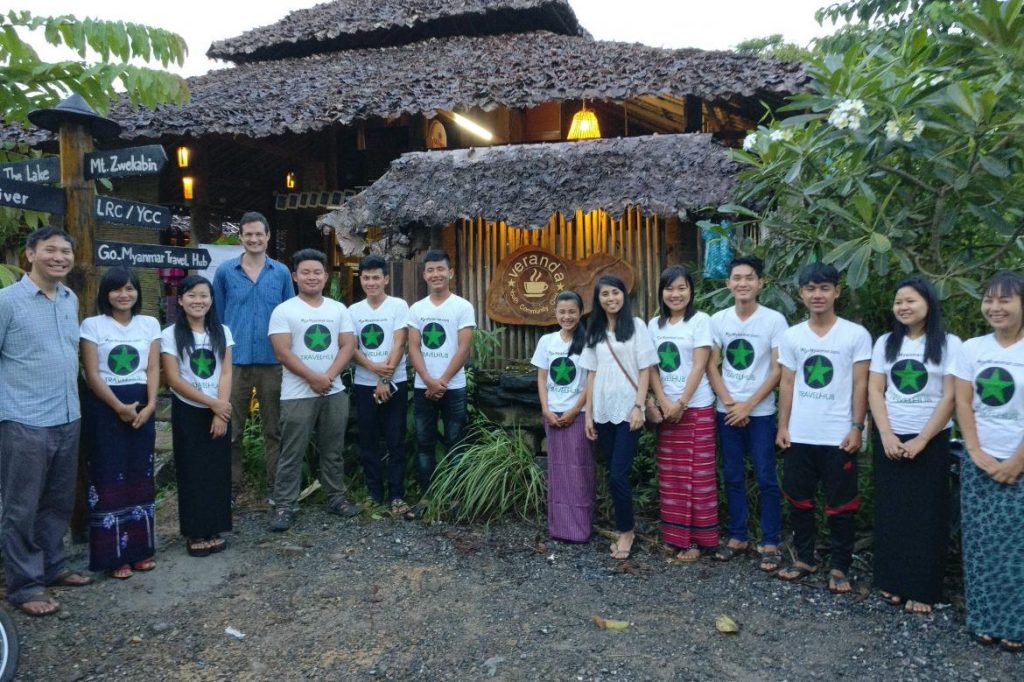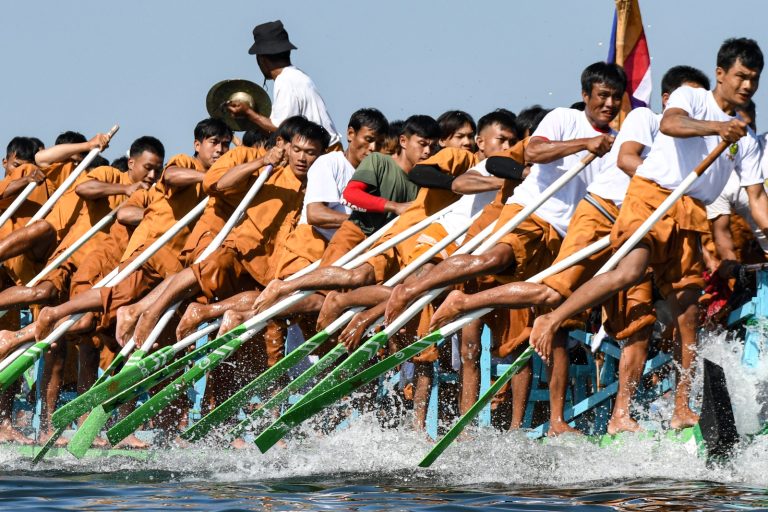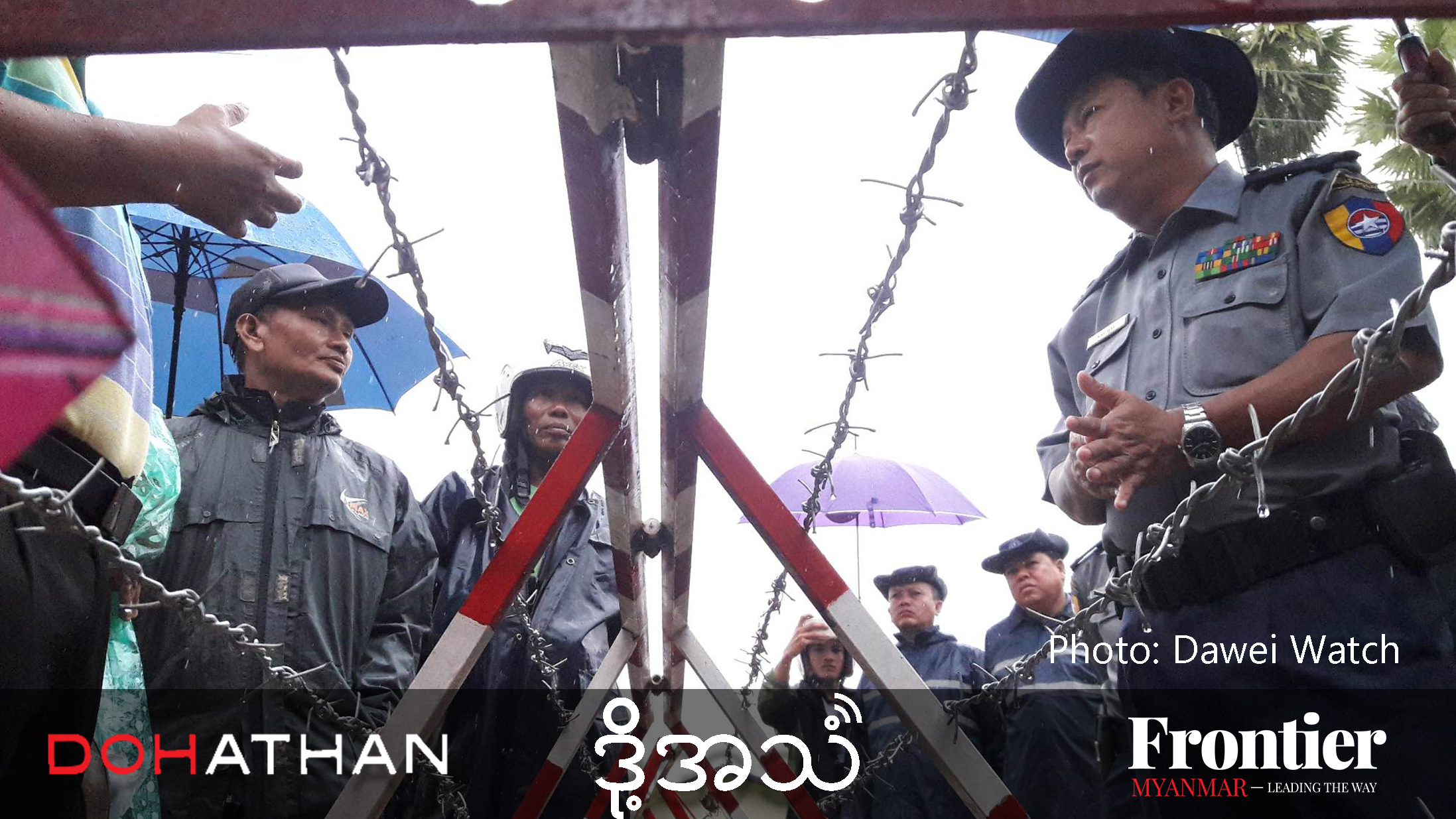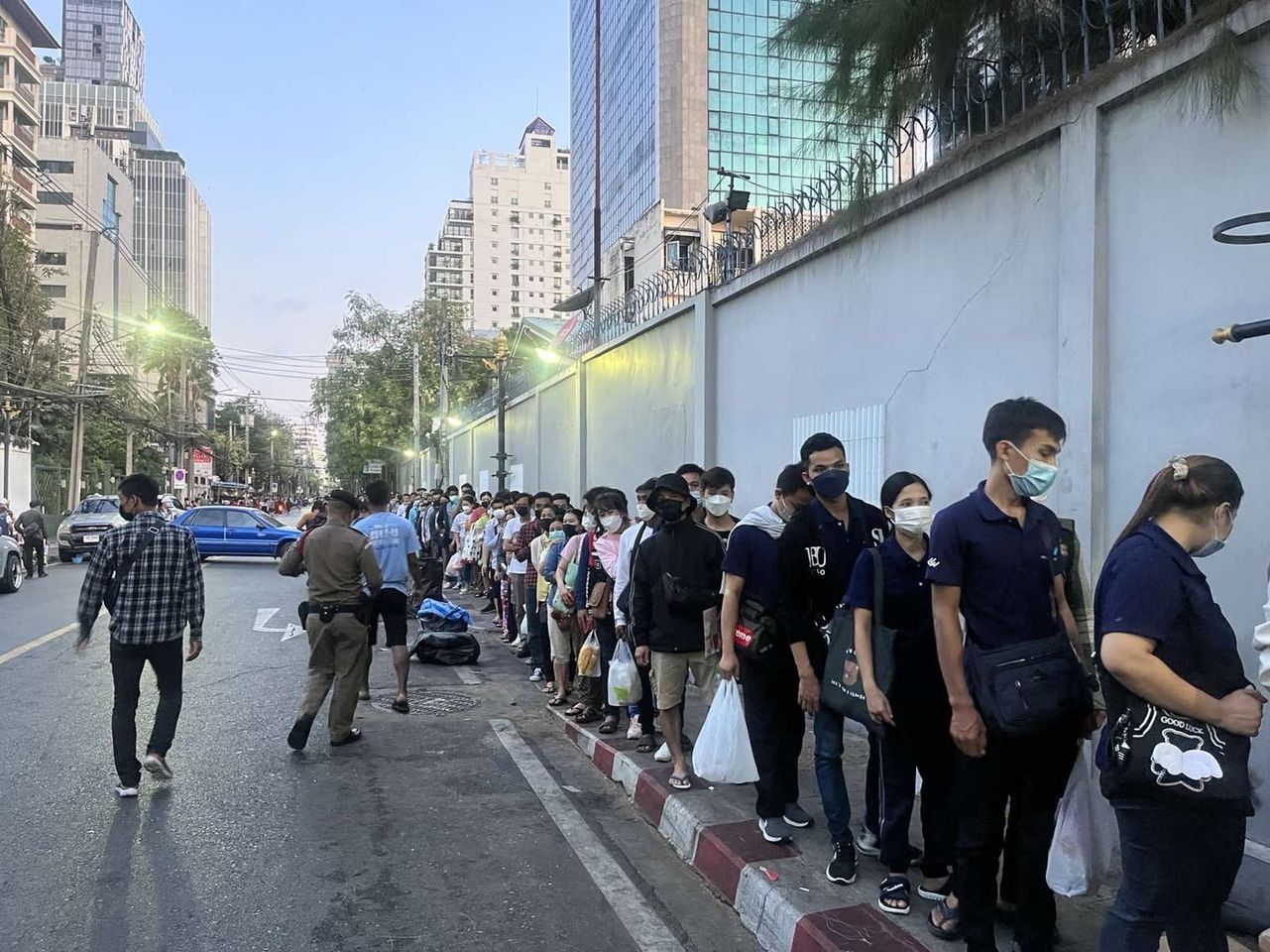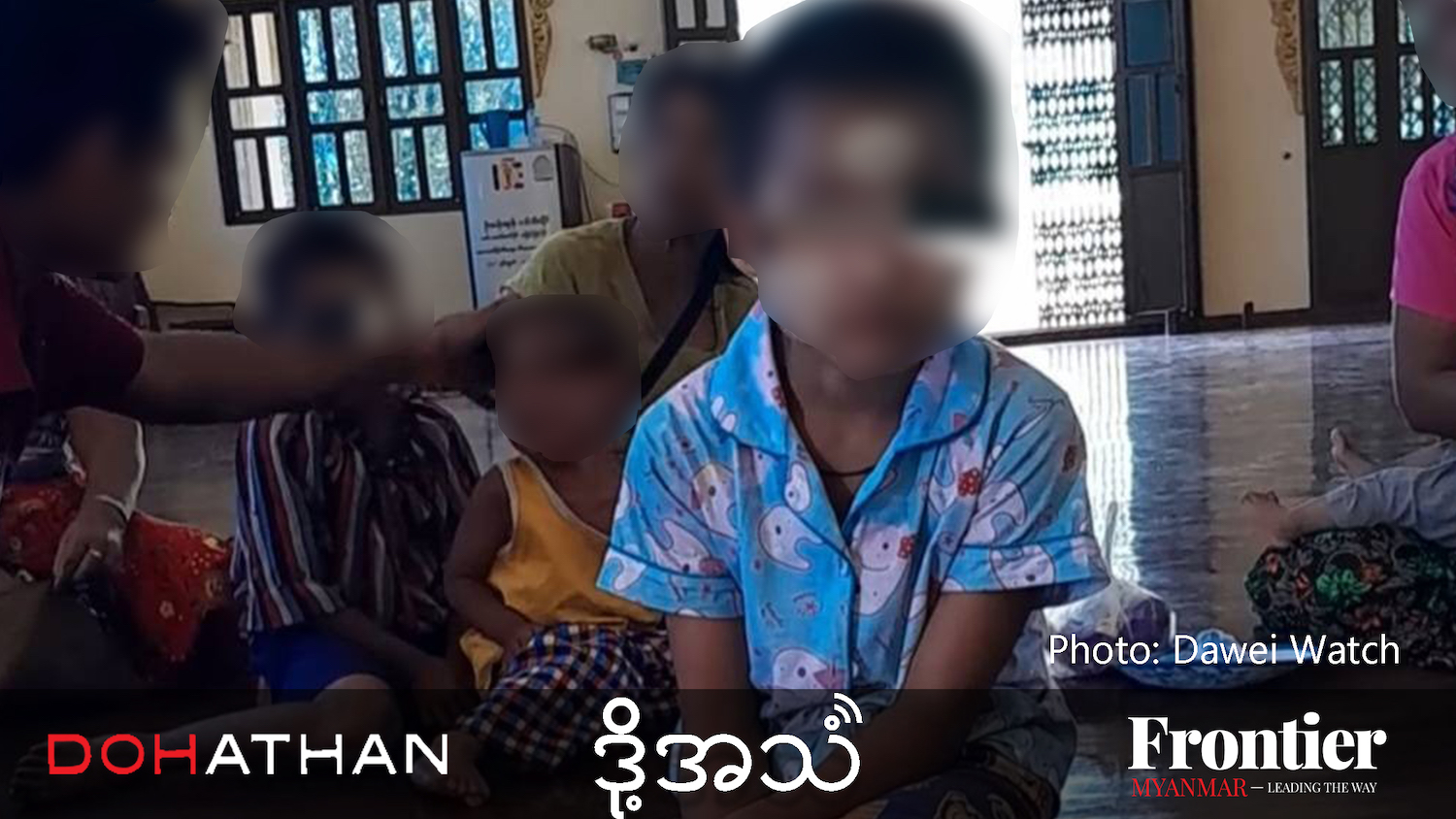Two “travel hubs” established in Hpa-an and Dawei aim to fill a gap for many visitors to Myanmar by providing useful on-the-ground information and booking services in the towns.
By HEIN KO SOE | FRONTIER
SET ON the southern banks of Kantharyar Lake in Hpa-an sits the Veranda Café, a relaxing, picturesque restaurant that is popular with visitors to the Kayin State capital.
They come not only for the food and drink, but also to learn about local culture and customs as well as environmental issues. The café also operates as a social enterprise, with proceeds supporting local youth groups.
Veranda Café added another string to its bow late last month, established as the site of one of two Go-Myanmar.com Travel Hubs in the country. The hubs, established by the travel website in partnership with NGO Business Innovation Facility, are aimed at providing information to visitors about what to see and do in the area, as well as help them hire guides and make bookings for transport, accommodation and activities.
More hubs are planned throughout the country. But for the time being the only other is in Dawei, the capital of Tanintharyi Region.
Support more independent journalism like this. Sign up to be a Frontier member.
“Most visitors to Myanmar find their information through the internet, but when they come to Hpa-an they need more information,” said Ko Sa Shine, the founder of Veranda Café. “Veranda can provide important information to tourists who come to the restaurant.”
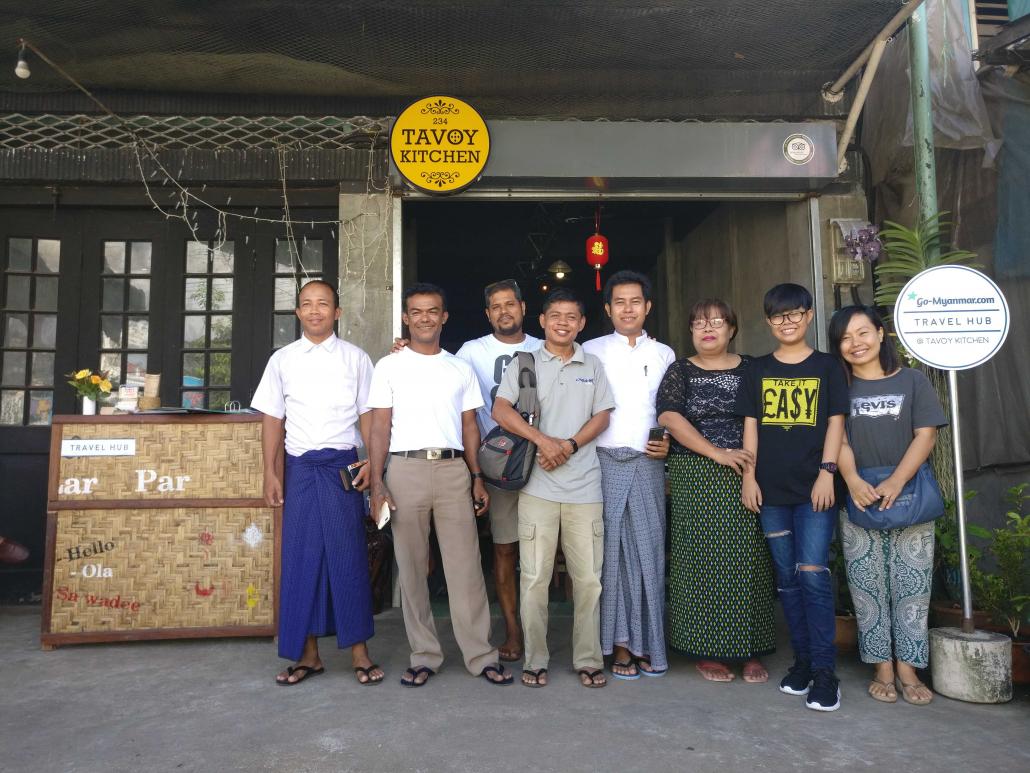
A photo taken at the Go-Myanmar Travel Hub in Dawei. (Supplied)
Sa Shine said that the hub would be useful not only for visitors but also local businesses, which can use it as a place to advertise their services free of charge.
Among those doing so is Ma Hnin, the founder and owner of Than Lwin Oo restaurant, which is beside paddy fields on the outskirts of Hpa-an. The restaurant has grown in popularity in recent years and offers kayak tours on a nearby lake, with more activities planned in the future.
Ma Hnin hopes that by linking with the hub at Veranda, she will be able to attract more visitors.
“Before, some tourists came to my restaurant [to eat] and to do kayaking, but I hope more will come after we made this link with the travel hub,” she said.
But she added that more needs to be done to boost tourism in Kayin State, including improving the quality of roads and providing round-the-clock electricity, moves she said would improve opportunities for tourism entrepreneurs in the state.
Another travel hub has been established at Tavoy Kitchen, a restaurant located on a street off the main road in Dawei.
Dawei is not traditionally a major destination for foreign visitors but it does offer potential for tourism growth due to its proximity to pristine beaches and the Myeik Archipelago.
Daw San San Yi, the owner of Tavoy Kitchen, said she hopes that the travel hub will be useful in providing important information about the town to visitors.
Daw Yadana Thant, tourism marketing manager for BIF, said that it took two years of research to find the locations for the hubs, with the criteria including small and medium sized enterprises run by people not actively involved in the country’s politics.
BIF are planning to roll out more travel hubs in the future, she said.
U Myint Htwe, deputy director general of the Ministry of Hotels and Tourism, said he welcomed the role the hubs would play in providing information to tourists to help boost the industry, but added “they can’t make money from sharing information through a travel hub”.
Since 2002 the ministry has established 27 information centres throughout Myanmar, mainly in parts of the country that are popular with tourists. Frontier tried to contact the centres at Bagan, Mandalay Railway Station, Heho and Kalaw by telephone, and staff did not answer at Heho and Kalaw.
Speaking from the Bagan information centre, Daw Kyi Kyi Shein said she had been working there since 2002, providing information for visitors to the site. She said the centres do not provide booking services.
“We support [tourism] by only providing reliable information, and [visitors] don’t pay money,” she told Frontier.
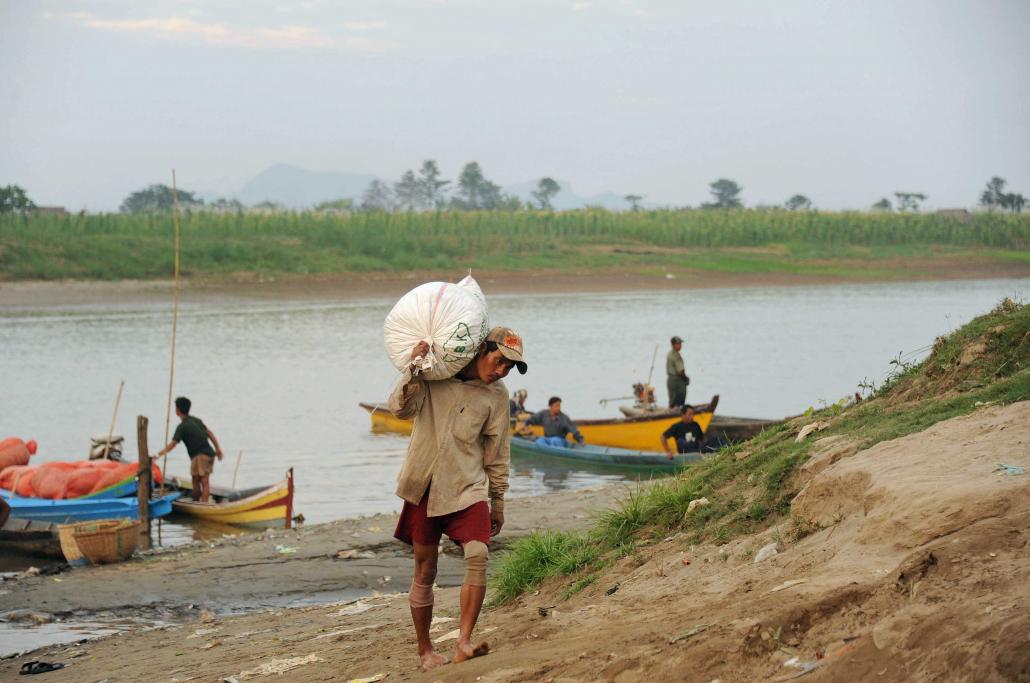
A man carries a bag of supplies on the bank of the Thanlwin River at Hpa-an, the capital of Kayin State. (AFP)
There are no information centres at Hpa-an and Dawei, opening a space for the hubs to be established.
Easy Travel Dawei operator Ko Thein Htike is well known among many visitors to Dawei as “Sam the Man”. He said that the hubs could offer an important service to visitors to the town.
“True information is important to visitors,” he said. “Some of the information online is fake or unreliable, so through the hub visitors can enjoy their visit based on real, reliable information.”
TOP PHOTO: A photo taken at the Go-Myanmar Travel Hub in Hpa-an. (Supplied)


